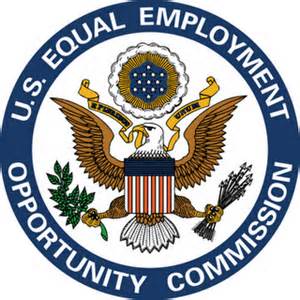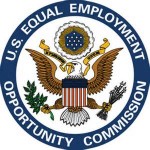 As we previously reported, the EEOC has decided to pursue protections for transgender workers under Title VII’s prohibition against sex discrimination and harassment as part of its strategic mission, even though no federal statute, including Title VII, explicitly prohibits employment discrimination based on gender identity or expression.
As we previously reported, the EEOC has decided to pursue protections for transgender workers under Title VII’s prohibition against sex discrimination and harassment as part of its strategic mission, even though no federal statute, including Title VII, explicitly prohibits employment discrimination based on gender identity or expression.
To this end, the EEOC filed two lawsuits on Sept. 25, 2014 on behalf of transgender workers –EEOC v. Lakeland Eye Clinic, P.A. (Middle District of Florida, Tampa Division) and EEOC v. R.G. & G.R. Harris Funeral Homes Inc. (Eastern District of Michigan, Southern Division) — on behalf of transgender workers.
On April 9, Judge Mary S. Scriven of the U.S. District Court for the Middle District of Florida approved a consent decree entered into between the EEOC and Lakeland Eye Clinic, P.A. settling one of the two lawsuits. The terms of the Consent Decree, including the nature of the programmatic relief required by the EEOC make it crystal clear that this is an area that the EEOC will continue to pursue in 2015 and beyond.
Case Background
In EEOC v. Lakeland Eye Clinic P.A., the EEOC claimed that an organization of healthcare professionals fired an employee because she is transgender, because she was transitioning from male to female, and/or because she did not conform to the employer’s gender-based expectations, preferences, or stereotypes. The complaint alleged that even though the claimant had been performing her duties satisfactorily, she was terminated soon after she began presenting as a woman and informed her employer that she was transgender.
Terms of the Consent Decree
The EEOC and Lakeland Eye Clinic, P.A. reached a settlement during the course of discovery. In full and complete settlement of the claims raised by the EEOC, the parties entered into a Consent Decree which Judge Scriven approved on April 9. The following are highlights of the terms of the Consent Decree:
- Total payment of $150,000 to the aggrieved employee as well as a neutral letter of reference
- Revised employer discrimination and harassment policies stating that no employee will be terminated (or harassed) “based on an employee’s status as transgender, because of an employee’s transition from one gender to another, and/or because the employee does not conform to the Defendant’s sex or gender-based preferences, expectations or stereotypes”
- Managerial and employee training including “an explanation of the prohibition against transgender/gender stereotype discrimination under Title VII” and “guidance on handling transgender/gender-stereotype complaints made by applicants, employees and customers.”
- Monthly reports to the EEOC every six months certifying compliance with the terms of the Consent Decree
- Two years of monitoring by the EEOC, including the right to conduct workplace inspections with 24 hours’ notice
Implications for Employers
The theories of liability articulated by the EEOC in this case closely follow the EEOC’s prior landmark administrative ruling titled Macy v. Bureau of Alcohol, Tobacco, Firearms and Explosives, EEOC Appeal No. 0120120821 (April 23, 2012) (previously discussed here) in which it held that transgender individuals may state a claim for sex discrimination under Title VII.
We expect that EEOC-initiated ligation on behalf of transgendered individuals will continue to increase given the Commission’s enforcement strategy and desire to “push the envelope” in this area. As we previously advised, employers must be mindful of issues related to gender identity and/or expression that might arise during interviewing, hiring, discipline, promotion and termination decisions. Employers should be particularly vigilant when an employee identifies as transgender, or announces a plan to undergo a gender transition. Stay tuned!
This blog was previously posted on the Seyfarth Shaw website here.



